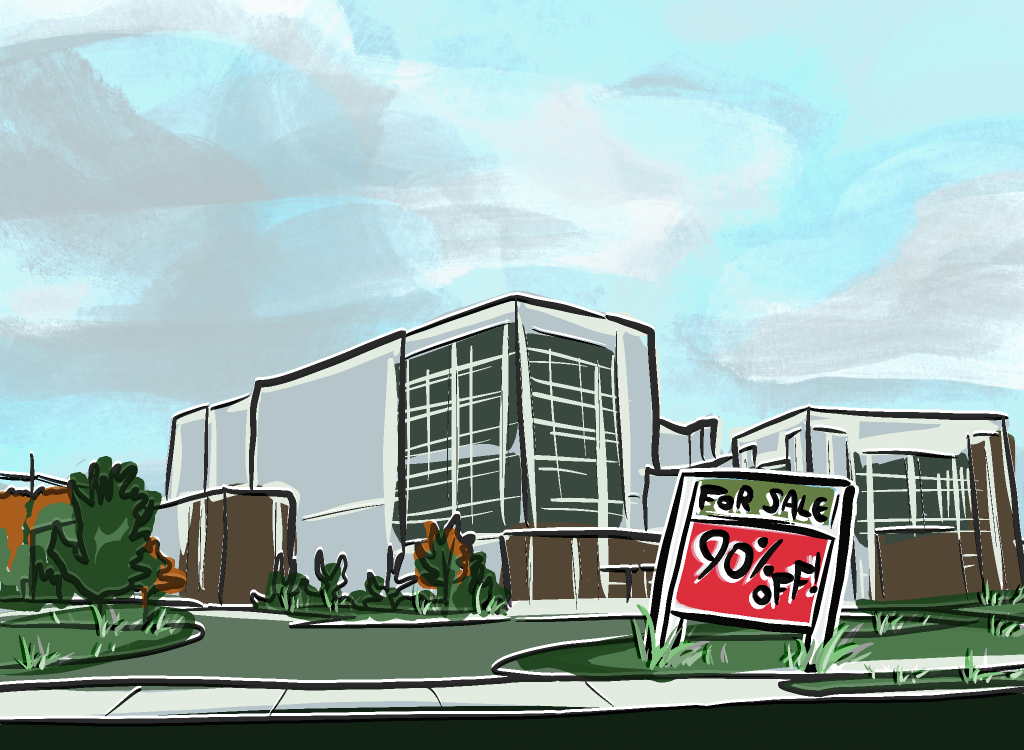Binghamton University has recently purchased a facility in Johnson City, which is set to be used as an annex to Glenn G. Bartle Library, storing books that have been removed from their locations on campus. No other official plans for the Johnson City campus, or any other Downtown Binghamton campus projects, have been released at this time.
Naturally, with the University buying up so many potential properties, there are unintentional consequences and effects on the surrounding community — namely the issue of University-driven gentrification of the Binghamton area.
Binghamton, like any college town, has its fair share of issues. Housing discrepancies, transportation issues and a food desert on the North Side are all aspects of life for many in Binghamton. While education is important, to behave as if we are completely separated from the community we inhabit is simply irresponsible.
The property, a former Gannett Central New York printing facility, was purchased for $4.5 million, despite being originally valued at $50 million. This is at an approximate 90 percent discount. The building is near Main Street in Johnson City and is a whopping 97,000 square foot building, resting on 10 acres of land. With no information advertised to students, or even local officials, this purchase is definitely set to raise eyebrows.
This isn’t a gift from an anonymous donor, it’s a purchase made through affiliates of the University, the BU Foundation. It seems that despite massive budget cuts to the library and its collections, hiring freezes, construction debt and limited services accessible for students due to the pandemic, the BU Foundation still has managed to scrape the money together in order to secure property to expand the school. Were these cuts an attempt to offshoot this purchase? There isn’t even enough information available to say. This also may not be the only property up for grabs, as there are a total of 15 other property purchases in Binghamton and the surrounding areas, with even less information available than this one.
The purchase was made through the BU Foundation, largely though fundraising efforts. However, with so many budget cuts on the part of the University, and with so many students hurting financially, it seems that many were left entirely unaware of this expenditure. Angela Riley, Binghamton City Council representative for the third district and a prominent member of the Town-Gown Advisory Board, was not notified of the purchase until Pipe Dream reached out for a comment.
With BU’s national rank increasing, it may be that the administration is looking to both its physical campus area, improve the aesthetic of the existing campus and increase enrollment. This, unfortunately, appears like a short-term solution to a long-term issue. BU can expand exponentially but if programs for students, like mental heath services, and issues like sexual assault get swept under the rug, BU students may not stick around, which would only make things worse years down the line. Fixing our debts and financial issues is, of course, paramount, but prioritizing quantity of locations and services over quality will leave many students and the surrounding community behind.
Students, faculty and those living next door to us everyday deserve to know what is happening in their neighborhoods. During a recent BU council meeting, where the purchasing of properties in Johnson City was addressed, BU President Stenger stated that “A lot of our other activities are trying to secure properties in Johnson City so that we can make sure that Johnson City has the right feel for our students, and safety for our students.” While the surface-level sentiment is positive, BU’s growth shouldn’t come at the cost of local residents. Nor should it come without the knowledge of those paying for, attending and working at the University — that is just as wrong. Time and time again we’ve stated that transparency is essential on behalf of the University administration, but this time, it’s not just about us and our tuition dollars, it’s about the history and livelihoods of the people we live alongside everyday. Angela Riley said it best earlier this month, “In Johnson City, they put the [School of Pharmacy and Pharmaceutical Sciences] and they encouraged a lot of new businesses that didn’t necessarily benefit or include the residents that were housed there. In fact, some of them were displaced. You can renew a part of the community, but also include the residents that are also invested.”



